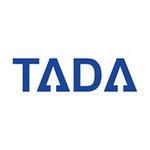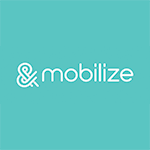Description

360Alumni

TADA
Comprehensive Overview: 360Alumni vs TADA
360Alumni
a) Primary Functions and Target Markets
Primary Functions:
360Alumni is a platform designed to help universities and other educational institutions manage and engage their alumni networks. Its key functions include:
-
Event Management: Facilitates the planning and execution of events, allowing institutions to connect and engage with their alumni through both virtual and physical gatherings.
-
Job Board and Career Services: Offers a platform for job postings and career opportunities, aiming to support alumni career advancement.
-
Mentorship Programs: Provides tools for creating and managing mentorship opportunities between alumni and current students or between alumni themselves.
-
Fundraising and Giving: Supports fundraising campaigns and initiatives to encourage donations and financial support from alumni.
-
Community Engagement: Enables alumni to connect, communicate, and collaborate through social networking features and discussion forums.
Target Markets:
360Alumni primarily targets educational institutions, including universities, colleges, and schools, looking to enhance their alumni relations. It also serves non-profit organizations that wish to engage their community members more effectively.
b) Market Share and User Base
While specific market share data for 360Alumni might not be readily available, platforms in this niche space typically face competition from established alumni engagement solutions, such as Graduway and Alumnifire, as well as custom-built platforms by larger educational institutions. The user base for 360Alumni depends on the number of institutions that adopt its platform, and it may cater to thousands of alumni across these networks.
c) Key Differentiating Factors
-
Integrated Platform: 360Alumni offers a comprehensive suite of tools within a single platform, addressing various needs from event management to career services.
-
Community-Centric Features: The platform emphasizes fostering community through social networking functionalities, allowing for a more interactive and engaging user experience.
-
Focus on Engagement: By integrating mentorship programs and discussion forums, 360Alumni focuses not just on maintaining alumni databases but on actively engaging and connecting alumni.
-
Flexible Fundraising Tools: Offers advanced fundraising capabilities, which can be critical for institutions looking to leverage their alumni network for financial support.
TADA
a) Primary Functions and Target Markets
Primary Functions:
TADA (Transport as a Service) focuses on providing mobility solutions, particularly in the realm of ride-hailing and transportation services. Its functions include:
-
Ride-Hailing Services: Offers an app-based platform for passengers to book rides with ease.
-
Driver Partner Services: Provides a framework for drivers to partner with TADA to offer ride services.
-
Safety and Trust Features: Emphasizes features that ensure safety and build trust between drivers and passengers.
Target Markets:
TADA mainly targets urban commuters seeking convenient and reliable transportation options. It can also appeal to freelance drivers looking for opportunities to earn income through ride-hailing services.
b) Market Share and User Base
TADA operates in the competitive ride-hailing market, contending with major players like Uber, Lyft, and Grab. Its overall market share is smaller due to the dominance of these larger companies. However, TADA distinguishes itself in certain regions or niche markets where it may grow a dedicated user base.
c) Key Differentiating Factors
-
Blockchain-Based Platform: TADA leverages blockchain technology to enhance transparency and trust, differentiating itself from other ride-hailing services.
-
Zero Commission for Drivers: Unlike many competitors, TADA often promotes having zero commission fees for drivers, making it an attractive option for those looking to maximize earnings.
-
Community-Driven Approach: Emphasizes a community-oriented model, creating a closer-knit relationship between drivers and passengers.
-
Alternative to Traditional Models: By focusing on fair practices and leveraging technology, TADA aims to be seen as a fairer, more equitable alternative to traditional ride-hailing services.
Conclusion
360Alumni and TADA serve entirely different markets with distinct functions and target audiences. While 360Alumni is focused on alumni engagement and educational institutions, TADA caters to transportation needs in urban regions. The differentiating factors of each reflect their respective industries' demands, with technology and community focus being central themes.
Contact Info

Year founded :
Not Available
Not Available
Not Available
Not Available
Not Available

Year founded :
2019
Not Available
Not Available
El Salvador
Not Available
Feature Similarity Breakdown: 360Alumni, TADA
To compare 360Alumni and TADA, we need to break down their core features, user interfaces, and any unique aspects that distinguish them. Here’s a general overview:
a) Core Features:
360Alumni and TADA Common Features:
-
Alumni Engagement:
- Both platforms focus on connecting and engaging alumni networks, offering tools to maintain connections post-graduation or membership.
-
Event Management:
- Provide tools for organizing events, including webinars, reunions, or gatherings, with RSVP tracking and promotional features.
-
Community Building:
- Facilitate the creation and management of communities or groups within the network for better interaction and networking.
-
Directory Services:
- Both have a searchable directory of members or alumni, allowing users to find and connect with one another.
-
Communication Tools:
- Feature communication tools like messaging, announcements, and newsletters to keep members informed and engaged.
-
Fundraising Capabilities:
- Include fundraising tools to support campaigns or development projects, often integrated with payment systems.
b) User Interfaces:
User Interface Comparison:
-
360Alumni:
- Typically presents a user-friendly and interactive interface designed for ease of navigation, often with a focus on vibrant and accessible community features.
- Dashboard emphasizes quick access to community events, news, and member searches.
-
TADA:
- Known for a streamlined, possibly more minimalistic interface. Prioritizes intuitive design to ease the management of events and community interactions.
- The interface may emphasize efficient workflow processes, where simplicity aids in quick task management.
Both platforms aim for a user-centric design but may differ in terms of aesthetic choices and the prioritization of features on the dashboard.
c) Unique Features:
Unique Features:
-
360Alumni:
- Lifetime Engagement Model: Extends engagement beyond typical alumni interaction, encouraging lifecycle relationships through ongoing support and connections.
- Geolocation Tools: Offers location-based networking opportunities, allowing members to connect with nearby users or events.
-
TADA:
- Task Automation and Workflow Management: Known for its strong task management features where users can automate repetitive tasks and streamline workflows efficiently.
- Robust Reporting and Analytics: Provides in-depth analytics and reporting features for better tracking of engagement metrics and outcomes.
By focusing on these specific features, we can understand the strengths and value propositions of each platform, tailored to their respective audiences and objectives.
Features

Not Available

Not Available
Best Fit Use Cases: 360Alumni, TADA
360Alumni and TADA serve different purposes and fit various business needs based on their respective functionalities. Here’s a breakdown of the best use cases for each:
360Alumni:
a) For what types of businesses or projects is 360Alumni the best choice?
-
Alumni Associations and Schools: 360Alumni is specifically tailored for educational institutions and their alumni networks. It provides a platform for alumni engagement, networking, and fundraising.
-
Non-Profit Organizations: Organizations looking to build and maintain a robust member network for purposes like fundraising, event management, and community engagement can benefit from 360Alumni’s networking tools.
-
Professional Associations: Groups that aim to create a community of professionals for networking and development can use 360Alumni to maintain strong member relations and engagement.
d) How do these products cater to different industry verticals or company sizes?
- Educational Institutions: Regardless of size, from small colleges to large universities, 360Alumni provides platforms to manage alumni relations effectively.
- Non-Profits: Small to medium-sized organizations can leverage it for community building and donor management.
TADA:
b) In what scenarios would TADA be the preferred option?
-
Retail and E-commerce Businesses: TADA is ideal for businesses focusing on customer loyalty programs, engagement, and reward systems to enhance customer retention and lifetime value.
-
Telecommunications and Utilities: Companies in industries with recurring transactions can use TADA to develop customized loyalty programs, analyze customer behaviors, and incentivize long-term engagement.
-
Consumer Goods and Services: Brands aiming to build stronger relationships with their customers and reward repeat purchases can use TADA for strategic loyalty campaigns.
d) How do these products cater to different industry verticals or company sizes?
- Retail and E-commerce: Suitable for small startups to large enterprises that need robust loyalty solutions.
- Telecom and Utilities: Medium to large companies seeking to enhance customer retention through comprehensive loyalty strategies.
Both 360Alumni and TADA cater to different business focuses and industries. 360Alumni is primarily for organizations aiming to manage community relationships, predominantly in educational and professional settings. In contrast, TADA is geared towards commercial enterprises across various industries that seek to cultivate customer loyalty and enhance their engagement strategies.
Pricing

Pricing Not Available

Pricing Not Available
Metrics History
Metrics History
Comparing undefined across companies
Conclusion & Final Verdict: 360Alumni vs TADA
To provide a conclusion and final verdict for 360Alumni and TADA, it's essential to consider the key features, strengths, weaknesses, and specific needs of users. Since I lack specific proprietary details and user experiences post-October 2023, I'll base this analysis on general considerations and typical characteristics associated with alumni engagement platforms like 360Alumni and marketing automation tools similar to TADA.
Conclusion and Final Verdict:
a) Best Overall Value: The determination of which product offers the best overall value depends on the specific needs of the organization. Generally:
-
360Alumni might offer the best value for educational institutions or organizations primarily focused on alumni engagement, networking, and fostering an alumni community. Its features typically include event management, fundraising, job boards, and peer-to-peer communication specifically tailored for alumni networks.
-
TADA could be better suited for organizations interested in more comprehensive marketing automation capabilities, particularly if the focus is on engagement through multi-channel marketing, analytics, and customer relationship management beyond just alumni.
b) Pros and Cons:
-
360Alumni:
- Pros:
- Tailored specifically for alumni needs with integrated career services, event planning, and community engagement tools.
- Provides specialized tools for fundraising and mentoring.
- Facilitates strong networking opportunities among alumni with targeted communication.
- Cons:
- May lack robust marketing features if the organization wants to extend its activities beyond alumni-specific engagement.
- Could be limited in scope for non-educational institutions or broader customer engagement strategies.
- Pros:
-
TADA:
- Pros:
- Strong marketing automation capabilities with support for campaigns, lead nurturing, and analytics.
- Versatile platform suitable for various industries beyond education.
- Potentially better for organizations focused on CRM and broader engagement.
- Cons:
- May not have specialized alumni engagement features like 360Alumni.
- Could be less community-focused and more business or marketing-centric.
- Pros:
c) Recommendations:
-
For Educational Institutions or Alumni Organizations: Strongly consider 360Alumni if your primary goal is to enhance alumni relations, organize reunions, and manage alumni-specific fundraising. It’s tailored to these needs and will offer relevant features to empower alumni networks.
-
For Businesses or Organizations Seeking Robust Marketing Automation: Opt for TADA if your goals include comprehensive marketing strategies, managing diverse customer engagements, and utilizing advanced analytics. Its broader scope in marketing automation might be more beneficial.
-
General Advice: Evaluate the specific needs and strategic goals of your organization. Consider conducting trials of both platforms focusing on their alignment with your objectives, the ease of use, customer support quality, and the adaptability of each to future growth and technological changes.
Every organization is unique, and the best choice will always hinge on aligning platform capabilities with your tailored objectives and long-term vision for engagement or marketing.
Add to compare
Add similar companies




